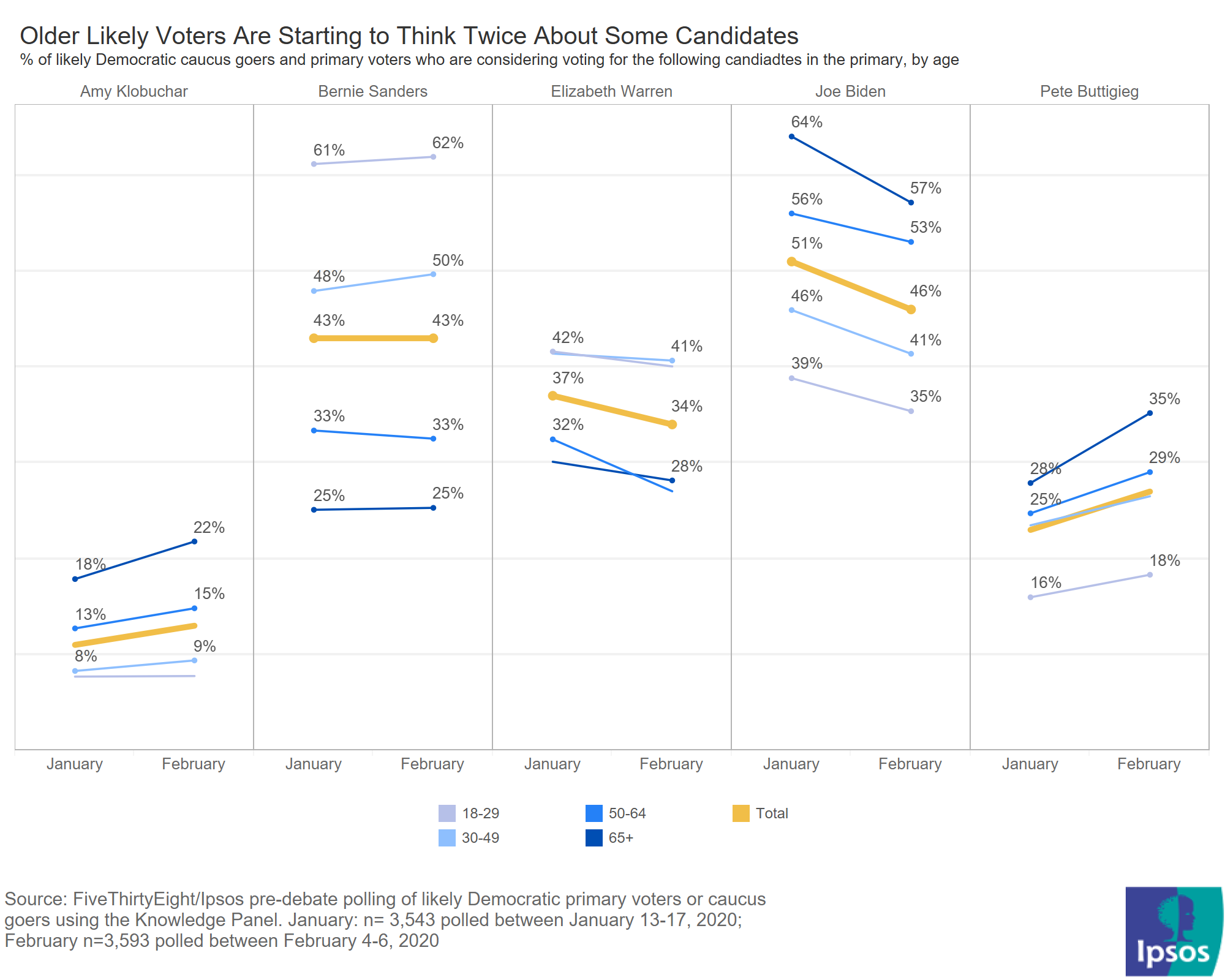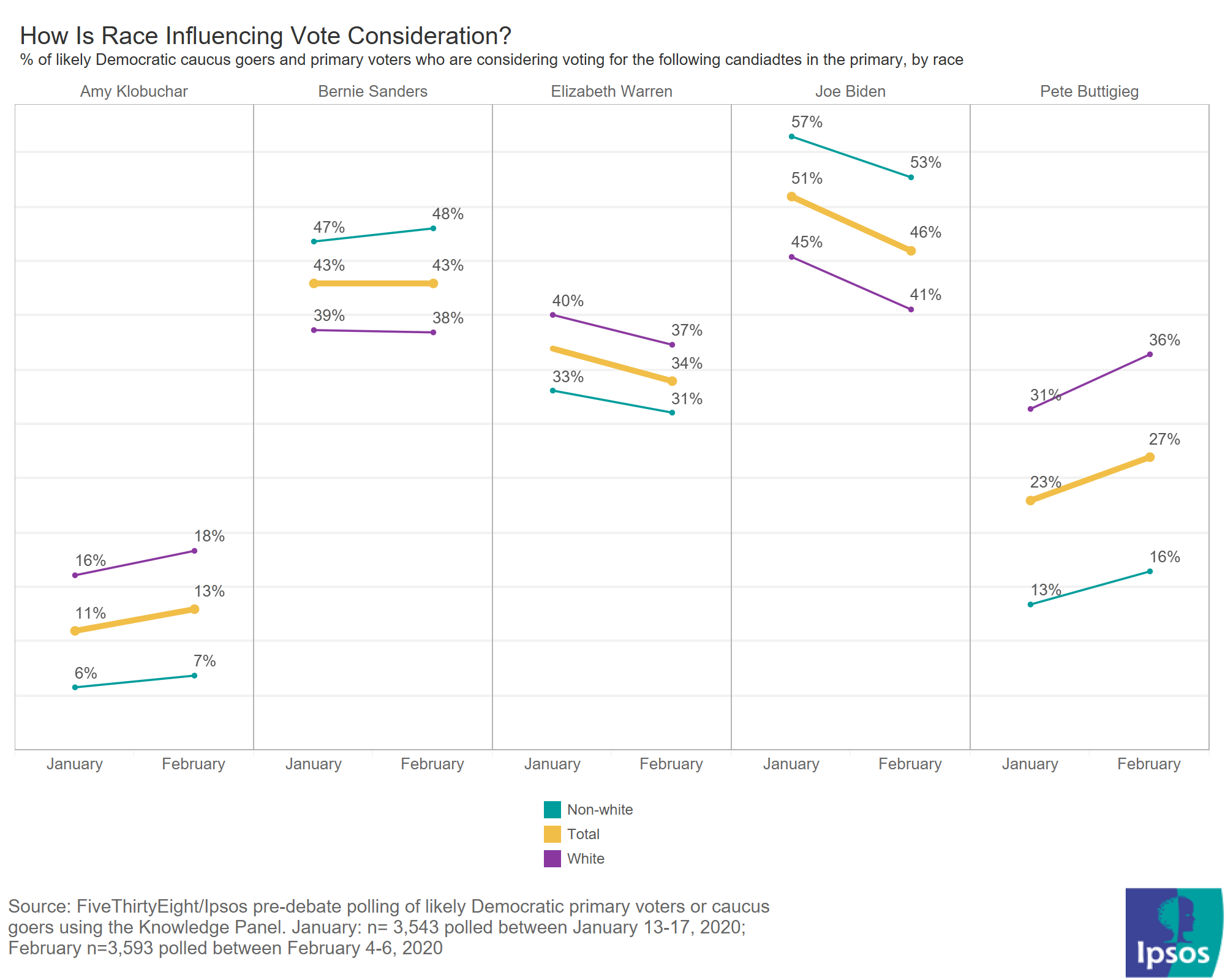After Iowa and Impeachment, Here Is Where the Candidates Stand
Over the past month, former Vice President Joe Biden has lost ground among likely Democratic caucus goers and primary voters. At the same time former South Bend Indiana Mayor Pete Buttigieg is earning a second look by some. After a month full of impeachment proceedings, the President’s acquittal, and a very messy kick off to 2020 voting in Iowa, the numbers are shifting ahead of a slew of other early states.
Among likely Democratic voters that FiveThirtyEight/Ipsos polled ahead of the January and February debate, former Vice President Joe Biden’s vote consideration has fallen from about 51% ahead of the January debate to 46% before the February debate. Biden’s numbers have taken a slight hit among some of his core constituents, older voters and non-white voters, though overall, he still narrowly leads the filed on this question.

Biden dropped by seven points among people over 65, going from 64% considering voting for him in January to just 57% ahead of the February debate. Biden also lost support in the 30 to 49 age bracket and those in the 50 to 64 range, but that dip was in line with the overall fall in his vote consideration numbers month-to-month.
Biden came in fourth in Iowa, as of the most recent counting. No Democratic candidate who placed outside of the top three in Iowa has managed to go on to win the primary, though the 2020 election cycle has already bucked many historical trends.
While Biden’s campaign was preparing for an anemic Iowa caucus, instead looking to perform well in South Carolina and Super Tuesday states that better play to his strengths among non-white voters, people may have taken note of Biden’s absence on the Iowa podium. Biden’s vote consideration among non-white voters fell four points between pre-debate polls in January and February, standing at 57% last month and holding at 53% currently.

Buttigieg and Senator Amy Klobuchar, both of whom appeal to segments of Biden’s coalition with their more moderate, centrist stances, have experienced a bump in voter consideration. This holds particularly true among the same constituencies where Biden took the greatest hit.
Older voters are giving Buttigieg another look, with about 35% of people over 65 now considering Buttigieg, an uptick of about eight points from January. Klobuchar gained a modest four points among older voters as well.
Still, Buttigieg has not gained much ground with minorities. That 20-point difference in support between white and non-white voters is a weakness that Buttigieg has been grappling with for the better part of his campaign.
Senators Elizabeth Warren and Bernie Sanders, the more left leaning candidates, have plateaued in voter consideration, underlining persisting worries about their mass appeal as general election candidates. Warren has lost some support among non-college educated voters, with a five-point drop from the January pre-debate poll. Additionally, her support among Independents has shrunk by four points as well.
After Sanders’ rise in the polls ahead of Iowa, his stalled numbers among likely Democratic voters illustrates a perennial problem for his campaign: how to bring in people outside of his movement. Though, as Iowa demonstrated, this primary is still very competitive.



